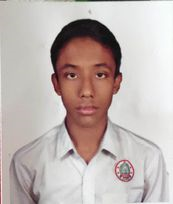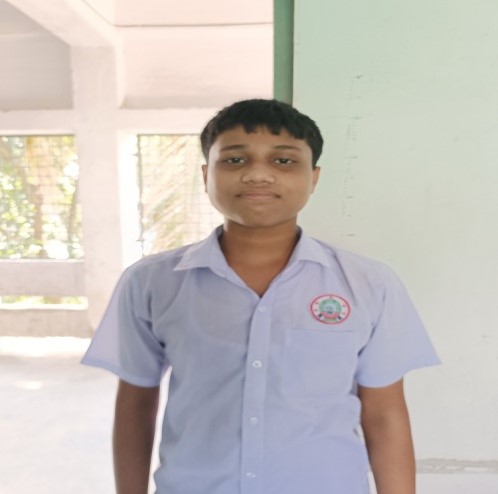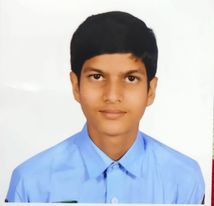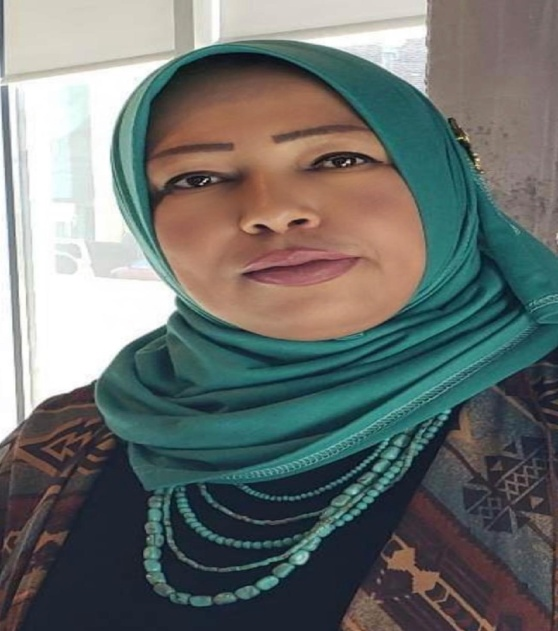Steps The auric field Of my own nemesis Own your tribe Nurture the sockets of your heart As if a newly polished High school ground That transports your Little brittle garden Into a big pool of Melancholic ambrosia. My other half as if it Gently spoke my rawness My wet treasured hydrangeas Into a wooden coffin of Tumultuous laughing stock The soft peached rainbow Bulking around the lawn The little trinklet of a choir My sudden bemused allegory It's fair enough Leaden steps With my own nemesis
Poetry from J.D. Nelson
ink ink ink & we leave it lemon face thoughts, maybe — tomorrow counts for corn june goose legendary large amounts of truck stop — voices in the mire howdy, dave! centimeter schwa chaco canyon — [major houlihan] beginning & lake toe supreme — five-doppler footlong three flowers later pecos pecan pecos — bio/graf J. D. Nelson’s poems have appeared in many publications, worldwide, since 2002. He is the author of ten print chapbooks and e-books of poetry, including *Cinderella City* (The Red Ceilings Press, 2012). Nelson’s first full-length collection is *in ghostly onehead* (Post-Asemic Press, 2022). Visit his website, MadVerse.com, for more information and links to his published work. His haiku blog is at JDNelson.net. Nelson lives in Boulder, Colorado, USA.
Poetry from Lorette C. Luzajic

Thirteen Ways of Looking at a Night Hawk after Nighthawks, by Edward Hopper (USA) 1942 1. Nighthawks: Postcards From Easy Street. A foggy night. Tom Waits choking on the microphone. Eggs and sausage, toast. Warm beer and cold women. Dewana, fading burlesque queen, bumps and grinds through another round of late night jazz. Her husband, in his taxi outside, collects the strays and malcontents and takes them elsewhere, or home, if they have one. 2. May 13, 1942. Mr. Edward Hopper, S. Washington Square, New York. Chicago. Night-Hawks. 3000, less 33 1/3%, 1000. 2000, less photos, 29.00. Check $1971. 3. “The loneliness thing is overdone,” Hopper said himself. 4. Sometime around 1992, stone cold winter, inside McDonald’s, somewhere in New York, waiting to warm. Drifting, in those days, from town to town. A gangly sort, his face a sharpened street corner, slid his tray over, sandwiches and fries. It could have been Ric Ocasek but he said his name was Voltaire. All I had on my mind was running away backwards, homewards, or if my boyfriend would come back for me after whatever business he was up to, but I distracted myself with the little salt packets heaped high in hopes of skinny fries. I was half-starved, but toughed it out by grumbling about the un-green meal I’d been given. Voltaire was unruffled, but he did have a lesson to teach. You chose this place, he said. He picked up the little white envelope and folded it until it broke open and salt snowed over the Formica. Besides, this little packet’s whole purpose is your fries, and in wait of that, to hold the essence of the world... I’d never thought of it that way before, but never thought of it any other way again. 5. On a winter’s night, a traveler: hair full of Jupiter and copper pennies. She’s a long way from Nacogdoches and she can’t sleep. She inspects her nails, lets her new friend in the fedora edge his fingers closer to hers. He seems nice. She nods for more coffee, dreams of rum and grenadine. 6. Another diner, a dime a dozen. A woman is writing a song. Another woman hitches up her stockings, ducks into the dawn and wields her umbrella against the rain. 7. Kaldi’s, New Orleans, Decatur Street, our meeting place. Chicory in heavy pottery. Tourists and trombones and vampires. 8. Nine years after Nighthawks, the ballad of the sad café. 9. Café des Nattes, Sidi Bou Said, artists gathering above the sparkling Tunisian sea for shisha and mint tea for 300 years. For one afternoon I join them, squatting down on the red and green floor mats like I lived there. A German tourist next to me is reading Hesse and on the other side, some young women are arguing amicably about the origin of tajine cookery. 10. 1990. The fleet of puffy shirts and pointy boots line the north window of the all-night Yonge and Carlton Golden Griddle like some kind of pirate wedding party. 11. Night + brilliant interior of cheap restaurant. Bright items: cherry wood counter + tops of surrounding stools … good looking blond boy in white (coat, cap) inside counter. Girl in red blouse, brown hair eating sandwich. Man night hawk (beak) in dark suit… holding cigarette…Sign across top of restaurant, dark—Phillies 5¢ cigar… Note: bit of bright ceiling inside shop against dark of outside street—at edge of stretch of top of window. Descriptive notes for her husband’s work by Jo Hopper 12. Everything Hopper painted was a kind of movie still. 13. A clean well-lighted place, a cafe church, an American prayer.
Lorette C. Luzajic reads, writes, publishes, edits, and teaches small fictions and prose poetry. Her work has been published in hundreds of journals, and translated into Urdu and Spanish. She was selected for Best Small Fictions 2023. She has been nominated several times each for Best Small Fictions, Best Microfictions, Best of the Net, the Pushcart Prize, and Best American Food Writing. She has been shortlisted for Bath Flash Fiction and The Lascaux Review awards. Her collections of small fictions are The Rope Artist, The Neon Rosary, Pretty Time Machine and Winter in June. Lorette is the founding editor of The Ekphrastic Review, a journal of literature inspired by art, running for almost nine years, and the brand new prose poetry journal, The Mackinaw. Lorette is also an award-winning mixed media artist, with collectors in more than 40 countries so far.
Poetry from Don Bormon

New Year As we step into the year 2024, New hopes and dreams knock on the door. With promises of change and fresh starts, We're ready to embrace what's in our hearts. The past is behind, a new chapter begins, Filled with opportunities and untold wins. Resolutions made, with determination strong, We pave our path, where we know we belong. Celebrations ring out as the clock strikes midnight, Filling the air with joy, hope, and delight. The future unfolds like a story untold, As we welcome the new year with arms bold. So let's cherish the moments, both big and small, And cherish the memories we'll recall. For in the canvas of time that's yet to be, Lies the beauty of 2024, full of possibility. Don Bormon is a student of grade nine in Harimohan Government High School, Chapainawabganj, Bangladesh.
Poetry from Muntasir Mamun Kiron

My Motherland Bangladesh, so fair and green, A land of rivers, where dreams convene. From the Sundarbans to the Chittagong Hill Tracts, In your diversity, our unity interacts. With a history rich, and culture profound, In your tapestry of life, we're forever bound. From the bustling cities to rural fields so wide, In your embrace, our hearts and hopes coincide. Your people, resilient, kind, and bold, In your stories and songs, their tales unfold. Bangladesh, my homeland, you shine so bright, In your embrace, we find our guiding light. Muntasir Mamun Kiron is a student of grade 10 in Harimohan Government High School, Chapainawabganj, Bangladesh.
Poetry from Wazed Abdullah

The River River flows, like a winding song, Nature's dance, both swift and strong. Mirror of the sky, a shiny glance, A watery journey, in a rhythmic trance. Stories whispered to ancient stones, Time's soft flow, like quiet tones. An adventure grand, forevermore, A river's tale, simple and pure. Wazed Abdullah is a student of grade 9 in Harimohan Government High School, Chapainawabganj, Bangladesh.
Poetry from Faleeha Hassan

Writer’s Block When I try to write I sense that millions of readers are Crowding the paper’s edge, Kneeling, genuflecting, and lifting their hands To pray for my poem’s safe arrival. The moment it looms on my imagination’s horizon, Gazing at the concept in a diaphanous gown of metaphor, Young people smack their lips—craving double entendres. Meanwhile, with piercing glances, the elderly scrutinize Its juxtapositions and puns. Then the concept smiles shyly, dazed at seeing them. On the paper’s lines both young and old meet for a discussion, But my words resist And erect walls of critical theories. Then the paths of personal confession contract, Contract, Contract. My imagination calmly shuts down, And the conception retreats inside my head. At that hour, it afflicts my world with Bouts of destruction. Workers refuse their paychecks. Farmer let their fields go fallow. Women stop chatting. Pregnant mothers refuse to deliver their babies. Children collect their holiday presents but Toss them on the interstate. Our rulers detest their positions. Kings sell their crowns at yard sales. Geography teachers rend their world map And throw it in the waste basket. Grammar teachers hide vowel marks in the drop ceiling And break caesura by striking the blackboard. Flour sacks split themselves open, and the flour mixes with dirt. Birds smash their wings and stop flying. Mice swarm into the mouths of hungry cats. Currency sells itself at public auctions. The streets carry off their asphalt under their arms And flee to the nearest desert. Time forgets to strike the hour. The sea becomes furious at the wave And leaves the fish stuck headfirst in the mud. The shivering moon hides its body in the night’s cloak. Rainstorms congeal in the womb of the clouds. The July sun hides in holes in the ozone layer, Allowing ice to form on its beard and scalp. Skyscrapers beat their heads against the walls, Terrified by the calamity. Cities dwindle in size till they enter the needle’s eye. Mountains tumble against each other. My room squeezes in upon me, and The ceiling conspires against me with The walls, The chair, The table, The fan, The floor, Glass in the frame, The windows, Its curtains, My clothes, and My breaths. The world’s clarity is roiled. Atomic units change. I vanish into seclusion, Trailing behind me tattered moans and Allowing my pen to slay itself on the white paper. ....................................................... by Faleeha Hassan Translated by William M. Hutchins She is a poet, teacher, editor, writer, and playwright born in Najaf, Iraq, in 1967, who now lives in the United States. Faleeha was the first woman to write poetry for children in Iraq. She received her master's degree in Arabic literature, and has now published 26 books, her poems have been translated into English, Turkmen, Bosnian, Indian, French, Italian, German, Kurdish, Spain, Korean, Greek, Serbia, Albanian, Pakistani, Romanian, Malayalam, Chinese, ODIA, Nepali and Macedonian language. She is the Pulitzer Prize Nomination 2018, PushCaret Prize Nomination 2019. Member of International Writers and Artists Association. Winner of the Women of Excellence Inspiration award from SJ magazine 2020, Winner of the Grand Jury Award (the Sahitto International Award for Literature 2021) One of the Women of Excellence selection committees 2023 Winner of women the arts award 2023 Member of Whos’ Who in America 2023 SAHITTO AWARD, JUDGING PANEL 2023 Cultural Ambassador - Iraq, USA Email : d.fh88@yahoo.com
